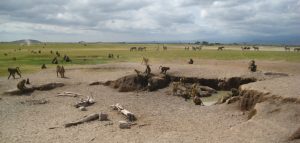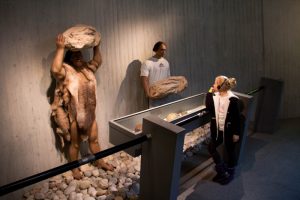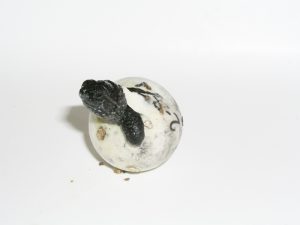Enter your address to receive notifications about new posts to your email.
Articles tagged Population Genetics
(75 results)
-
Can gene drives survive in the wild?
Efforts to engineer genomes in wild populations have huge potential for good—but the real world is more complicated than the lab. Until now, humans have never been able to seriously consider how to cheat evolution. But now that the CRISPR/Cas9 system has made genome editing easy and efficient, it might be possible to manipulate the…
-
Hubby & Lewontin: Problems and Conversations
The beautiful cover of the August issue of GENETICS was created by artist Michele Banks to commemorate the fiftieth anniversary of a pivotal moment in the history of evolutionary biology: the 1966 publication of a pair of GENETICS papers using protein electrophoresis to reveal that natural genetic diversity is bountiful. Thanks to a conversation between…
-
Kindred and KhoeSan: African ancestry is tied to ecogeography
Geography and ecology are key factors that have influenced the genetic makeup of human groups in southern Africa, according to new research discussed in the journal GENETICS, a publication of the Genetics Society of America. By investigating the ancestries of twenty-two KhoeSan groups, including new samples from the Nama and the ≠Khomani, researchers conclude that…
-
Kimura & Crow: Infinite alleles
For two weeks in the summer of 1953, Motoo Kimura enjoyed a welcome respite from loneliness and the austerity of post-war Japan. Crossing the Pacific from Yokohama to Seattle to commence PhD studies at Iowa State University, Kimura played deck golf, enjoyed full service meals, and napped to the soothing vibrations of the venerable passenger…
-
#TAGC16 Shorts: the bursting bubble of harmful mutations
Guest post by Tyler Kent. #TAGC16 Shorts are brief summaries of presentations at The Allied Genetics Conference, a combined meeting of seven genetics research communities held July 13-17, 2016 in Orlando, Florida. Purging harmful mutations is the most common task of natural selection. In non-recombining populations this background selection process represents the “survival of the…
-
#TAGC16 Shorts: evolution on ecological timescales
Guest post by Julia Kreiner. #TAGC16 Shorts are brief summaries of presentations at The Allied Genetics Conference, a combined meeting of seven genetics research communities held July 13-17, 2016 in Orlando, Florida. A common perception of evolution sees only slow and consistent genetic change over thousands of generations. But geneticists are increasingly shedding light on…
-
Fast-growing bacteria doom their colonies’ attempts at resistance
Lurking in colonies of pathogenic bacteria are drug-resistant mutants. If the colony is exposed to antibiotics, these resistant mutants may survive, but they still face the challenge of recolonizing the host. Their success in this task depends on their diversity; a diverse population is more likely to harbor mutants that can withstand a second threat,…
-
Selfish self-fertilization hampers adaptation
When finding a mate is difficult, self-fertilization offers a tempting solution by increasing the number of offspring an individual can produce. But although “selfing” provides a stopgap solution when mates are scarce, it is frequently an evolutionary dead end; when environmental conditions change, species with high selfing rates seem prone to extinction. In an article…
-
Fecal alchemy: Turning poop into genomics gold
When it comes to genotyping technology, poop genetics is stuck in the 1990s. While most geneticists are now awash in genome-scale data from thousands of individuals, those who depend on fecal and other non-invasively collected samples still rely on old-school, boutique panels of a dozen or so genetic markers. But feces — along with fur,…
-
Inbred Neanderthals left humans a genetic burden
The Neanderthal genome included harmful mutations that made the hominids around 40% less reproductively fit than modern humans, according to estimates published in the latest issue of GENETICS. Non-African humans inherited some of this genetic burden when they interbred with Neanderthals, though much of it has been lost over time. The results suggest that these harmful…
-
First gene linked to temperature-dependent sex determination
The sex of many reptile species is set by temperature. New research reported in the journal GENETICS identifies the first gene associated with temperature-dependent sex determination in any reptile. Variation at this gene in snapping turtles contributes to geographic differences in the way sex ratio is influenced by temperature. Understanding the genetics of sex determination…

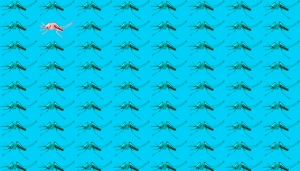
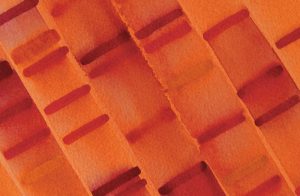
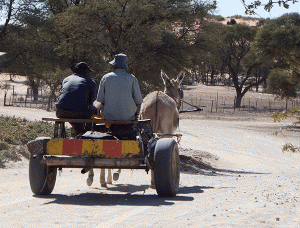

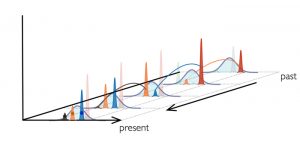

![This colorized version of PHIL 232 depicts a scanning electron micrograph (SEM) of a number of Pseudomonas aeruginosa bacteria. Photo and caption credit: Janice Haney CarrContent Providers(s): CDC/ Janice Haney Carr [Public domain], via Wikimedia Commons.](https://s36063.pcdn.co/wp-content/uploads/2016/07/rsz_1pseudomonas-300x211.jpg)
![Helonias bullata, a species threatened with extinction. Its low genetic diversity, a factor contributing to its decline, may have been caused by a high rate of self-fertilization. By Hedwig Storch (Own work) [CC BY-SA 3.0 (http://creativecommons.org/licenses/by-sa/3.0)], via Wikimedia Commons.](https://s36063.pcdn.co/wp-content/uploads/2016/07/1024_Helonias_bullata_Arktisch-alpiner_Garten_Chemnitz-0931-e1467579681557-300x197.jpg)
